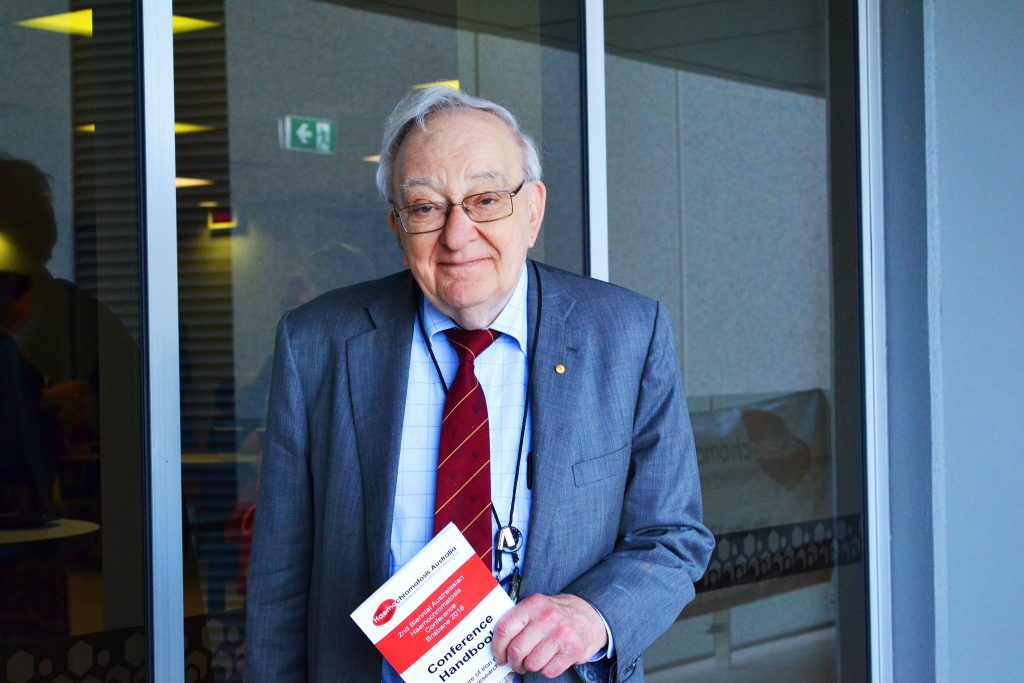
Professor Lawrie Powell passed away on September 23, 2022 at the age of 87 years after a long and highly distinguished career as a clinician, researcher, academic, administrator and mentor.
Motivated by wanting to fix some of the health problems in his family he studied medicine at the University of Queensland. After graduating he spent his intern year at the Royal Brisbane Hospital (now the Royal Brisbane and Women’s Hospital), where he subsequently worked for most of his life. He first became interested in haemochromatosis while working as a young medical graduate, caring for several young women with the condition.
Prof Powell went on to become one of the world’s foremost authorities on the disease with his work influencing current understanding of mechanisms underlying the condition and how to manage haemochromatosis clinically. His initial studies on haemochromatosis in the early 1960s combined both clinical and laboratory work, and demonstrated that haemochromatosis was clearly different from alcoholic cirrhosis, a commonly held view at the time.
Prof Powell’s reputation continued to grow through the 1970s and the 1980s, with him being recognised as the top academic hepatologist in Australia and a global leader in the field. In 1990, after forging a long career at The University of Queensland, he began a decade as the head of one of Australia’s largest and most successful research institutes, the Queensland Institute of Medical Research (QIMR). In 2002 he retired as QIMR Director in 2002 to take on the new role of Director of Research at the Royal Brisbane and Women’s Hospital, with the goal of stimulating research in a bustling clinical environment. He continued to carry out productive research over the next twenty years and remained active clinically, seeing haemochromatosis patients well into his eighties until 2021.
His relationship with his patients was always a very important one and he enjoyed a strong personal connection to them, treating many of them including many families, for extended periods of time. His patients benefitted from a treating physician at the forefront of haemochromatosis and hepatology research, and they in turn provided the basis for a great deal of that research.
One of his long-term patients was Margaret Rankin, and it was through discussions with Margaret that the patient support group now known as Haemochromatosis Australia (HA) was born in 1991, with Margaret as its first president. He was enthusiastic about forming an organisation which could disseminate information about haemochromatosis and act as a focal point for affected individuals to meet each other and exchange stories of their experiences. HA has been an extremely effective organisation in achieving that goal and in advocacy for patients with haemochromatosis, and it continues to thrive today. Prof Powell was a member of HA’s advisory board from its inception and, at the time of his passing, was a patron of the society, along with founding president Margaret.
Over many years Prof Powell built up one of the world’s largest haemochromatosis resources (patient data and tissue samples) and this was used for many clinical and laboratory studies. He leaves behind an imposing legacy, one that will continue to bear fruit for many years to come.
Source: This is an edited version of obituary provided by Professor Greg Anderson Head, Iron Metabolism Laboratory, QIMR Berghofer Medical Research Institute Australia.
